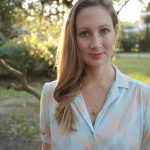When Angela Davis was a child faced with the daily facts of the Jim Crow South—a segregated bathroom that was dirty and barely functioning, a library, half full of shabby books—her mother made sure to tell her, “This is not the way things are supposed to be,” and “They will not always be this way.”
When I heard this story for the first time, two ideas struck me.
First, it offers a parable about parenting. In response to anxiety about what to tell our children when faced with injustice, I can think of no better starting point—or conclusion—than this formulation. It’s unwavering and empowering, condemning and hopeful.
Second, it cannot be coincidence that this sentiment is exactly what Davis committed her career to telling the United States about its prisons: it’s not supposed to be this way, and it will change.
As I read The Disordered Cosmos by Chanda Prescod-Weinstein, a book about the author’s experiences as a Black feminist and theoretical cosmologist, I thought of this story again. In the book’s final chapter, Prescod-Weinstein recalls her own mother’s words: “People need to know that we live in a universe that is bigger than the bad things that happen to us.”
Like Davis’s mother, Prescod-Weinstein’s mother, Margaret Prescod, was an activist, helping to found Black Women for Wages for Housework. Prescod-Weinstein’s grandmother, Selma James, cofounded the International Wages for Housework Campaign. All of these women have committed their lives to working in the realm of imagination, the space between what is and what should be. They gave a sense of this space to their children, who in turn grew up to explore it with their own work and imaginations.
Through their work and imaginations, they’ve presciently defined complex relationships between systems, forces, and people. Davis envisioned intersectionality—a concept coined by legal scholar Kimberlé Crenshaw in 1989—before we had the word. So did the Wages for Housework movements, which made it clear that challenging sexism could not be separated from or prioritized over challenging racism, classism, and homophobia (and vice versa, in all directions). Meanwhile, Prescod-Weinstein uses math to figure out the history of spacetime. In her own words, she aims “to chip away at what we think we know and what we don’t know in order to expand what we actually know.”
The utility of new clarity isn’t confined to academia, theory, or emotional coherence. New clarity makes way for new words and possibilities, which are the primary, precious materials for getting from here to there: from where we are now to a world where no one is deemed disposable—an abolitionist world, a world we may never see in our lifetime. Or rather, a world we may see only in fragments. We need new words and understandings—not only for crime, freedom, and responsibility, but also for history and spacetime—because it gets us closer to that world.
I don’t mean to suggest that the connection between mother and child is perfectly causal: children have their own paths. A mother’s words and work will only go so far. But the connection isn’t incidental, either. Early and often, people tell children what is and isn’t possible. It could be otherwise. What would a child do if the people who took care of her told her that the universe is enormous, bigger than the bad things that happen to us, and that the injustice of this moment is not only wrong but also impermanent—if we work to change it. Which we will, which we are.
When my son was a toddler, language was still a tool rather than his master. Having no clear understanding of its rules, he used it to expand and to explore. When he jumped in bed between me and his dad he shouted, “I’m snorgin’ in!”In the bath, he declared, “I’m a donut crumb god.” On his way out the door, “I’ve got brains in my head and socks in my shoes and shuddles in my cruddles.” What are shuddles? What are cruddles? It didn’t matter. It sounded good and felt true.
It was instructive to me, watching him bend language to his own purposes. I, too, would like to live beyond the words we have for what’s possible and true. I’m late to unlearn. Late to understand how big some words—like possible and true—can stretch, and also how many words—like late—reinforce, and are specific to, societal norms. The clock derived from the monastery but was quickly claimed by the factory as a tool of productivity.
More from our decarceral brainstorm
Every week, Inquest aims to bring you insights from people thinking through and working for a world without mass incarceration.
Sign up for our newsletter for the latest.
Newsletter
Who are our masters? What forces will define our lives? Language is not passive or inevitable. Its legitimacy doesn’t derive from timeless or cosmic truth. It is shaped, designed.
A primary designer of our modern vocabulary is capitalism. In his book Keywords: The New Language of Capitalism, John Patrick Leary writes how the words we use to describe “normal reality” serve the market and sacrifice people. He interrogates words like flexible which personify corporations and conceal, with a positive spin, the practical consequences of these values incarnate in our lives. A flexible job comes with a lower salary and no health care—but we’re meant to be grateful for how free we are! A nimble corporation is one that pivots, which—as in the case of General Motors in 2018, when it fired 15 percent of its human capital—often means job insecurity, food insecurity, and poverty for the people who work there. Words like resilience and grit celebrate American individualism while obliterating true individuality. We champion the role of grit in achieving the American dream, blithe to the way it boomerangs blame for failure back onto people whose odds were painfully, statistically, systemically slim since birth. Leary writes that the keywords of late capitalism don’t only deceive, they “manacle our imagination,”and make it difficult to conceive of alternative possibilities for how to live, organize, and heal.
The lexicon of the legal system is similarly determinative and deceptive. A judge will rule a defendant guilty and this single word will unleash, in its authority, the violence of the law: the convicted person is stripped of her rights, her home, her family, her freedom, her life. But outside the system, outside the courtroom, in the world of people living, the word guilty may fail entirely to describe what transpired. Sometimes this failure is factual. We know there are people in prison who did not commit the acts they’ve been convicted of. But regardless of innocence (another complicated word), the word guilty almost always fails for what it forgets. As Survived & Punished notes, “As many as 94 percent of some women’s prison populations have a history of physical or sexual abuse before being incarcerated.” Like the words of capitalism, to name a person guilty upholds individualism and discards the individual. To name a person guilty turns her into a person who deserves to be put away. It’s like magic, or religion: a single word—the ruling, rather than the facts or even the underlying act itself—transubstantiates a sacred life into a disposable one.
The picture here amounts to more than words matter. The words we use don’t only matter: they are like spells, sealing our fates and redoubling our allegiances.
Davis said recently in an interview that “the abolitionist imagination delinks us from that which is.” Delinking is emancipatory, but what comes next?
Perhaps darkness. The fertile dark of unknowing, where we can start to feel how many of our words, ideas, and systems are not inevitable or true. Here, in the dark, new words and notions can begin to grow. In delinking from that which is—from the parameters and systems of our lives—we relink to one another, and the truths that derive from that interconnection.
Unlike language, interconnection is inevitable. Like death or time, it enacts its force whether we like it or not. It can feel like a big problem. But inside the problem is an answer—a perennial garden, a heaven.
Image: Rhamely/Unsplash

